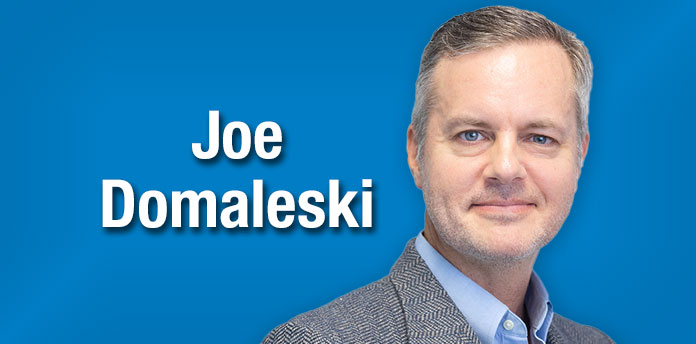I am not sure if it’s my age, the times we live in, or the fact that I deal with lots of people in my work but selective memory has become a real problem lately. Please know that I am not a counselor or therapist so I’m going to use the term “selective memory” in a non-clinical sense. If you suspect someone has a real memory loss problem, it’s best you refer them to a professional. For the purposes of this article, we’re going to examine selective memory that has intentionality behind it. In other words, situations in which the person chooses what to remember.
In common usage, the term selective memory is often used as a euphemism for a person’s ability to knowingly remember what they want to remember and forget things that are unpleasant or inconvenient. Scientists call this “confirmation bias”. Formally stated, confirmation bias is “the tendency to search for, interpret, favor, and recall information in a way that confirms or supports one’s prior beliefs or values.” (Nickerson, Raymond S. (1998), “Confirmation bias: A ubiquitous phenomenon in many guises”, Review of General Psychology). There are several dimensions to selective memory.
Belief perseverance is when someone maintains a belief or position despite information that contradicts it. We see this on so many levels in society today. It’s human nature to cling to what we originally learned and resist new information that may challenge our original beliefs. Skepticism is healthy (to a point). History is replete with examples of this such as believing the Earth is flat (sorry Flat Earth Society) despite overwhelming evidence we live on a spherical planet. The fact that science changes and evolve further complicates belief perseverance. For example, in college, I had a minor in Physics and we were taught that the proton, neutron, and electron were the smallest sub-atomic particles. Since my college graduation Quantum Physics has emerged which has defined a whole world of fundamental particles smaller than the atom and too complex to describe here. Yes, sometimes it’s easier for me to just cling to the original, simpler belief of the atom.
False (or illusory) correlation is when someone sees a relationship or connection between two things (people, events, data points) when no such relationship exists. On a positive level, this type of selective memory forms the basis of humor. Many internet memes are examples of correlations that are loose (or non-existent) but still funny. Stand-up comedians often use this as the basis for their comedy skits. But there’s a fine line between humor and negativity. Stereotypes that are wrong or harmful are negative examples of this. False correlation can also lead to poor decision-making, especially when one assumes causation. There are mathematical ways to establish correlation and causation which can be used to keep an emotional attachment to data in check.
Attitude polarization is when different points of view become extreme as different parties look for evidence that already supports their beliefs. Ambiguous evidence may serve to widen the gap as each party interprets the data to reinforce their positions. I probably don’t even need to give examples of this in modern society. Online media outlets have added to the polarization. They foster reality distortion fields in which a single news event can be spun in such a way as to further validate incomplete truths or falsehoods. Computer-based algorithms are used in search engine results and social media feeds to serve a person a steady stream of “like-minded” narratives to further the polarization. It’s amazing to me that a single news event can be interpreted in so many opposing, polarized ways.
How should we handle intentional selective memory?
- Use common sense. This is the ability to accurately receive, interpret, and process information in a manner common to most people. That doesn’t mean you have to agree with the majority, it means using discernment to consider the bigger picture. Have an open mind to new ideas, but also be skeptical if the logic isn’t sound or if something sounds too good to be true. Don’t believe everything you hear, but keep your mind open to new things. Contrary to what I learned in economics, people are generally not rational decision-makers. Most decisions in life are emotional ones, so use some common sense.
- Write things down. I have found that many people who regularly display selective memory tend to have an aversion to things in writing. “That’s not how I remembered it” can effectively be countered with a set of notes or a written agreement. It’s become standard practice in our business to create written notes after every meeting. Doing so ensures that everything is recorded for later reference. Trust others but verify facts with written notes.
- Respect others, especially when you disagree. Very little is gained when two opposing viewpoints clash violently. You can tell when a disagreement is getting unproductive when the discussion changes from a consideration of the facts to personal attacks or vague moral imperatives. When that happens, it’s best to walk away or move on to something else. You’re going to be frustrated and unlikely to change the other person’s point of view if they have a closed mind.
- Consider the intentionality of the situation. As mentioned in the first paragraph, some people really do suffer memory loss to varying degrees. Although typically associated with age, there are a number of factors such as trauma and stress that can come into play. On the other hand, some people stand to gain by selectively remembering things. It’s normally obvious if someone’s forgetfulness is intentional or not.
- Be aware of your own biases. As I’ve gotten older, I’ve become aware of my own selective memory. To counter this, I am consciously trying to be better about writing things down and considering viewpoints that don’t exactly line up with my own. Indeed, as a middle-aged white man, I make it a point to proactively seek information that may challenge my own beliefs.
Selective memory in society has become a big problem. The advent of algorithmically generated news feeds has amplified our biases and plays into our stereotypes. We tend to remember what we want to remember. Counter this by using common sense and decency when dealing with others. Be aware of confirmation bias and strive to have a more accurate view of the world yourself. I love this paraphrased quote from von Goethe – “if everyone would sweep their own front porch, the world would be a cleaner place.”
[Joe Domaleski, a Fayette County resident for 25 years, is the owner of Country Fried Creative – an award-winning digital marketing agency located in Peachtree City. His company was the Fayette Chamber’s 2021 Small Business of the Year. Joe is a husband, father of three grown children, and proud Army veteran. He has an MBA from Georgia State University and enjoys sharing his perspectives drawing from thirty years of business leadership experience. ]









Leave a Comment
You must be logged in to post a comment.